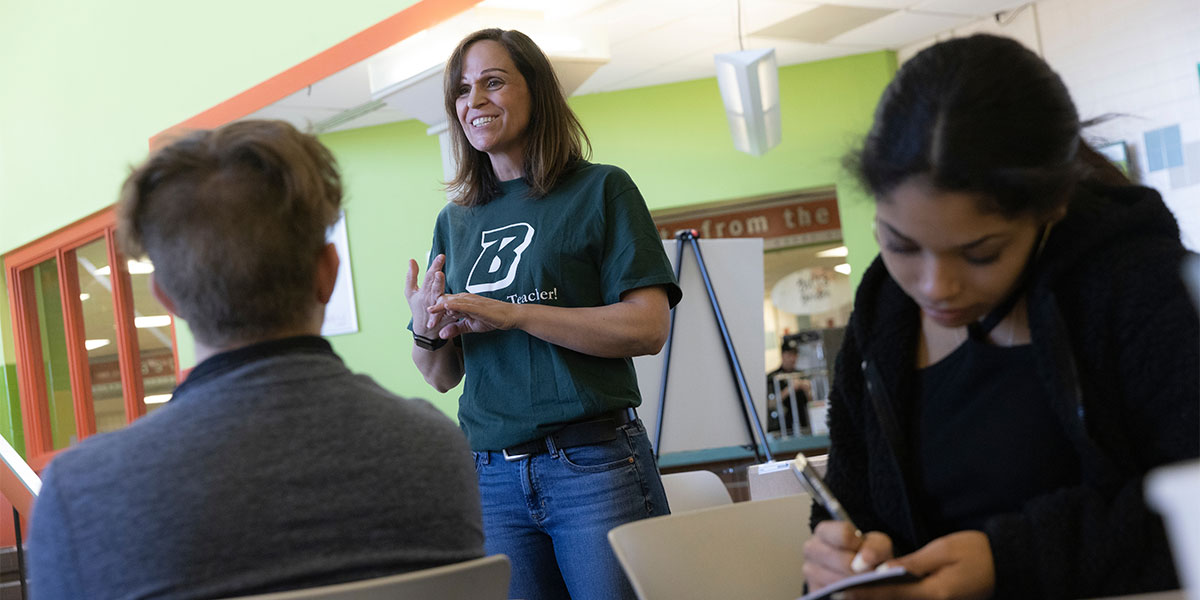What does it take to be a great teacher? High schoolers shown the way at Binghamton University

What’s the pathway to becoming a better teacher? And in the wide-ranging field of education, how many career opportunities are there to explore?
These are questions Binghamton University’s faculty in the Department of Teaching, Learning and Educational Leadership (TLEL) aim to answer while working with groups of local high school students each semester as part of the Southern Tier Teacher Academy. The two-course, dual-enrollment program, in which the University partners with SUNY Broome Community College, allows high school seniors to earn college credits in education.
“Your No. 1 job is to be an informed advocate for your students,” Candace Mulcahy, TLEL associate professor, told eight high school students from Binghamton, Windsor and Maine-Endwell during their April 5 visit to the University campus as part of the spring semester course.
The high school students, along with teachers from each district, spent the day on campus meeting and hearing from guest speakers from different facets of education, as well as learning about transfer opportunities from SUNY Broome, education-related majors and graduate school programs in education they could take advantage of at Binghamton.
“It started out of a desire from the local community, the local districts, to bring teachers back and keep them in the community,” Mulcahy said. “And so, for us to recruit teachers from high school all the way up through the pipeline through undergraduate and into a master’s program, it’s really important.”
The program, which has been offered since 2019, is meant to address the growing issue of teacher shortages nationwide and encourage the involvement of high school students who are passionate about pursuing educational careers. During both courses, the student participants also engage in a year-long, project-based learning experience focusing on local issues impacting teaching and learning, such as food insecurity.
Students involved in the Southern Tier Teacher Academy have also visited schools in one another’s districts as well as SUNY Broome as part of this year’s course. The program started initially with only the Windsor Central School District but has since partnered with Binghamton and Maine-Endwell.
“This program has been invaluable for kids who want to be future teachers,” said Kelly Hampton, a health teacher at Binghamton High School with 19 years of education experience. “It’s an opportunity to give the kids a perspective of what colleges have to offer, making sure they’re on the right track.”
Mulcahy said the Southern Tier Teacher Academy not only focuses on the importance of what makes a good teacher, but to opening students to other aspects of educational careers including administration, counseling, even textbook development.
One of the most important things future teachers need to keep in mind is “compassion about where their students are from,” Hampton said, and a need to build good relationships with them to truly make an impact.
“If you can’t reach them,” she said, “you’re not going to teach them.”

